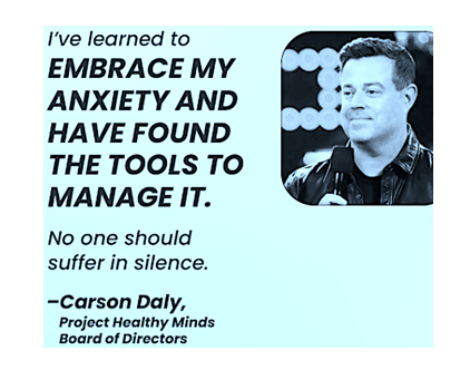Did you know that 95% of our daily behavior runs on autopilot? More often than not, we pay little mind to what we are actually doing at any given moment, because our brains are too busy focusing on a slew of other things. In short, we are perpetually distracted. This scatterbrained mentality is problematic for many reasons, not the least of which is that it harms our capacity to feel mentally (and physically) calm and well.
Mindfulness might seem like a buzzword, but it is, in fact, as important and useful as it’s touted to be. It is an effective tool for improving mental health, and bolstering overall happiness and emotional wellbeing. In order to harness the power of mindfulness, though, it’s important to first understand what it really means. Once you cultivate mindfulness in your life, it can be truly transformative.
What is mindfulness?
Simply put, mindfulness is the state of living in the present moment. It means slowing down from the fast life to focus on what’s right in front of you, in a relaxed, calm manner. It’s all about tackling one task at a time, and giving everything you do your full, undivided attention. Think of it as the exact inverse of multitasking. Rather than populating your brain with a million thoughts at once, mindfulness is about zeroing in on only one thing—and ignoring all the background noise and clutter.
A mindfulness mentality means maintaining a moment-by-moment state of being, in which you are entirely in touch with your thoughts and feelings—both physically and mentally. This stops us from entertaining obsessive and distracting thoughts, procrastinating, or harping about future concerns that are out of our control and not relevant in the present moment. It’s about channeling a mindset of acceptance, and living in the here-and-now.
The good news is, everyone possesses the ability to practice mindfulness. It’s simply a matter of learning how to harness it. Mindfulness is within all of us—it just requires activation and commitment.
Why practice mindfulness?
The benefits of mindfulness are rooted in science. Hundreds of studies have affirmed that mindfulness is an effective mechanism for mitigating mental health challenges. It has been shown to lower stress levels, improve memory, and reduce rates of anxiety and depression. A mindfulness mindset also yields better relationships and interpersonal skills, as well as stronger self-awareness—which can be a key to success both socially and professionally.
Beyond bolstering mental health, mindfulness can strengthen our physical wellbeing, too. Because mindfulness has proven to decrease stress, it also lowers blood pressure, improves sleep, and reduces chronic pain and gastrointestinal challenges. Remember, persistent stress can manifest in physical symptoms, so practicing mindfulness has bodily benefits.
Modes of mindfulness
Being mindful is not a one-size-fits-all approach. Through a process of trial and error, it’s important to pinpoint the methods of mindfulness that are right for you, your lifestyle and your personal needs.
In many ways, mindfulness is a form of meditation, in which you focus on your senses in a given moment. While doing guided meditations, yoga classes, exercise and therapy are all excellent vessels to channel mindfulness, there are very simple things you can integrate into your daily life that will make a tremendous difference. Here are a few:
- Start your day by setting an intention. When you wake up in the morning, before you check your phone, take a few deep breaths, and ask yourself: “What is my intention for this day?” Your intention shouldn’t revolve around specific personal or professional tasks, rather, it should be broader. For instance, “My intention today is to practice patience with my peers, and with myself.” Over the course of the day, check in with yourself to ensure you are fulfilling this intention. Taking a few pauses throughout the day to reflect will help you achieve your intention.
- Stick to a daily mindfulness routine. As is the case with all skills in life, mindfulness requires practice, which is why it’s essential to set aside isolated time daily to prioritize it. Pick a chunk of time during the day and dedicate it to practicing mindfulness—whether that’s through meditation or a few moments of self-reflection. Stick to the schedule. The more you commit to practicing mindfulness, the more it will stay grounded and enhance your life.
- Try different techniques. As mentioned above, different mindfulness exercises resonate for different people. Some popular practices include a body scan (during which you tune into your body’s senses), a guided breathing meditation (during which you focus only on your breathing), and a stretching exercise (which helps you tap into your breathing and your body).
- Infuse mindfulness into your life. Mindfulness can take many forms, and it can be as simple as slowing down to enjoy a meal, and savoring every single bite. It can also be as easy as powering down your phone when you’re with another person, and engaging wholeheartedly in a conversation with them.
- Enjoy what you do. Whether you’re eating, napping, walking, exercising, reading, cooking or taking a bath, mindfulness means being in the moment—and drowning out all distractions. Of course, it’s easier said than done, but it’s well worth it. Being mindful in all regards will enable you to live life to the fullest.



